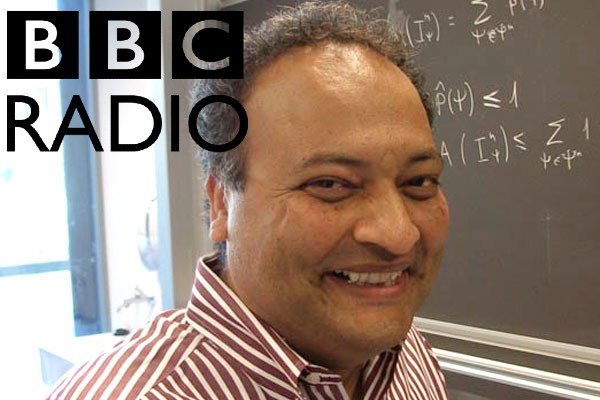Professor Vwani Roychowdhury Featured on BBC Radio 4

Vwani Roychowdhury, a professor in the Electrical and Computer Engineering department, was recently featured on BBC Radio 4’s program, “Conspiracies: The Secret Knowledge”, for his work on conspiracy theories.
The program, hosted by Phil Tinline, explores how conspiracy theories can inform the world about power. Roychowdhury was featured on one particular segment that aimed to distinguish “a fake conspiracy [from] a real one,” a question in which a team at UCLA strove to answer in a recent research paper. The study, which Roychowdhury helped orchestrate, explores the birth of conspiracy theories by analyzing different records of narratives exchanged on social media.
Through the use of artificial intelligence, Roychowdhury’s team gathered the “basic narrative structure” by combing through social media posts, identifying the actants, and the actions between the actants that eventually showed the creation of stories. Roychowdhury and his team then identified edges, or connections, between the actants to create a narrative graph that demonstrated the patterns and links between different facets of a story. In his interview with BBC, Roychowdhury said, “It’s like a 30,000 foot level view of how humans create stories.”
The study analyzed an example of a baseless conspiracy theory, “Pizzagate”, and an example of an actual, or true, conspiracy, “Bridgegate”, to note the differences between the two types of conspiracies. One of the differences the study found was that it took longer to develop a narrative for the actual conspiracy, while the baseless conspiracy theory developed rapidly. In addition, Roychowdhury explained that the Bridgegate conspiracy featured strong connections between actants, meaning that several edges would have to be removed to make the network collapse. On the other hand, Roychowdhury’s colleague, Professor Timothy Tangherlini of UCLA’s Scandinavian Section, explained that the Pizzagate conspiracy theory was “held together” by its actants’ usage of Wikileaks, and omitting any elements would weaken the theory drastically.
Professor Roychowdhury’s research on conspiracy theories was also featured in Spectrum News in December of last year. In addition, he specializes in the fields of communications/telecommunications, quantum computation and information processing, embedded systems, adaptive and learning algorithms, combinatorics and complexity, and biomedical informatics.
